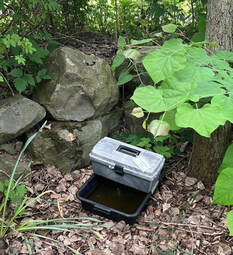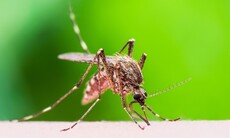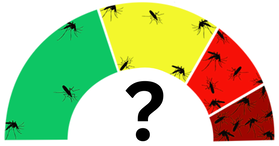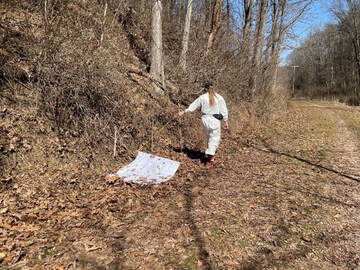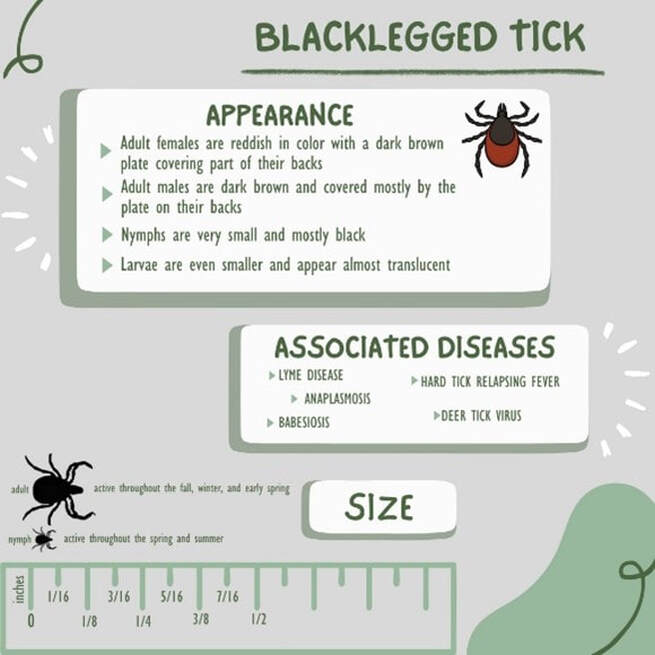|
The BCCD priorities the well-being and prosperity of our community members and values their time spent outdoors, both for leisure and work. that is why we participate in DEP's West Nile Virus Program. Through this program we are able to sample locations in and around our county to collect data and report on the mosquito and tick populations. This allows us to have up-to-date information on West Nile Virus and other tickborne illnesses in our area.
|
Mosquitoes
|
In 2000, West Nile Virus appeared in Pennsylvania for the first time. Pennsylvania's plan uses the principles of Integrated Pest Management (IPM) and focuses on education, habitat reduction, surveillance, and control. Adult and larval mosquito surveillance is conducted between April and October. WNV maintains itself by cycling between mosquitoes in the genus Culex and certain species of birds. A mosquito (the vector) bites an uninfected bird (the host), the virus amplifies within the bird, an uninfected mosquito bites the bird and is in turn infected. This cycle compounds itself through summer and fall, increasing the likelihood of someone being bitten by a diseased mosquito.
|
|
What can you do to prevent mosquito habitats on your property?
|
How can you protect yourself from West Nile virus?
|
What's this week's "Skeeter Meter"?See DEP website for the “Skeeter Meter” to see the current risk of West Nile virus in PA as well as information on the mosquito, tick, and black fly programs.
|
TicksDEP’s Tick Surveillance and Testing Program is responsible for conducting statewide active tick surveillance to determine the distribution, prevalence, and expansion of tick populations throughout the Commonwealth. In addition, the Vector Management Laboratory identifies, enumerates, and prepares ticks for pathogen testing. Due to their ability to transmit Lyme Disease and other tickborne illnesses the Program focuses mainly on Ixodes scapularis (Blacklegged or Deer Tick). Surveillance is conducted between April and September.
|
How can you protect yourself from tickborne illnesses?
- Wearing light colored clothing makes it easier to see any ticks on your clothing. Tuck your shirt into your pants and your pants into your socks.
- Using repellents that can be sprayed onto your clothing, like permethrin, will repel and kill any ticks that you encounter. The heat from a dryer can also kill ticks that may be crawling on your outdoor clothes.
- Checking yourself for ticks after being outdoors is important to reduce the risk of tickborne disease. The longer a tick is attached the more likely it is to transmit pathogens it may be carrying.
- Use an EPA approved insect repellent for tick prevention. DEET is a repellant used for ticks and mosquitoes. It can be sprayed directly on skin and/or clothing to help keep ticks away.
- Do not use household remedies such as burning the ticks, Vaseline, or using nail polish. ALWAYS REMOVE THE TICK AS SOON AS POSSIBLE.
Ticks Active Now
For questions related to mosquitoes and ticks, or to report complaints, please contact:
Breanna Ameigh
[email protected]
570-485-3119
Breanna Ameigh
[email protected]
570-485-3119
|
Bradford County Conservation District
Stoll Natural Resource Center 200 Lake Road, Suite E | Towanda PA 18848 Phone: (570)-485-3144 |

